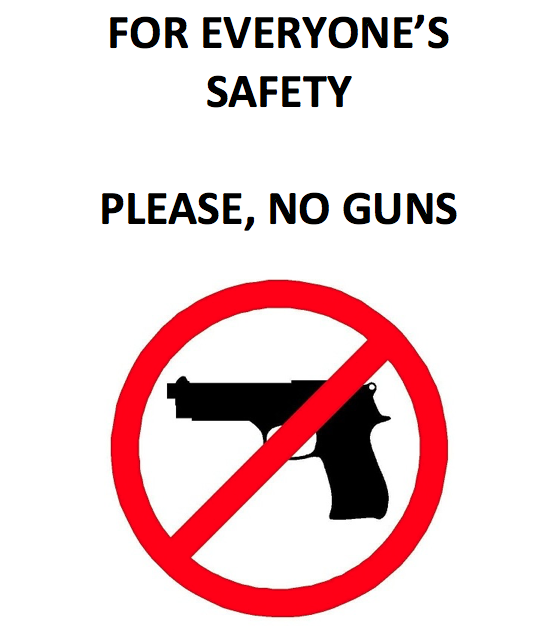This content is being reviewed in light of recent changes to federal guidance.
Guns on Campus: Why We Cannot Be Silent
Categories: Guest Blogger, HBW
Fannie Lou Hamer, who would now be 100 were she alive, became a tireless fighter for social justice. Who can forget her bold proclamation: “I’m sick and tired of being sick and tired.” Mrs. Hamer refused to be silent. She registered to vote in Mississippi, barely escaping death at the hands of those who feared her actions would move others to civil disobedience. We continue to ignore what she and others instinctively knew: silence makes us complicit in bringing about our own demise. Because social, political, and, yes, institutional issues always imply a power imbalance, our silence ensures that the most vulnerable among us will face new forms of oppression, guaranteeing the persistence of inequality. Silence normalizes indifference. Inequality and indifference are a lethal combination. That lethal combination becomes a terrifying reality when we add guns on campus.
When students make the personal choice to seek higher education at a public university, they unwittingly engage in a political act as they become increasingly aware of their rights and privileges. In Kansas, the act takes on new meaning—and at great risk to all of us on July 1. The legislators who favor the implementation of concealed carry have won the battle: the signs banning guns will come down, and students 21 or older will be allowed to carry weapons. No license or training required.
We in Kansas are now in a contested zone: faculty and students are at loggerheads with state laws and ideologues who seek to dictate our future. They—state government and its spokespeople with little if any understanding of higher education—want to exercise their power. We—trained in higher education, shaping minds through guided instruction, preparing leaders, and conducting difficult dialogues that respect difference—have a choice. Do we want to commit to teaching and learning and stand up against guns; or do we want to play it safe and choose to be indifferent?

President Trump has made his position clear. “I will never, ever impinge on your right to bear arms,” he told the National Rifle Association. His pronouncement curries favor with a portion of the American people, but it is a wake-up call for the rest of us. Make no mistake about it. That “right” does impinge upon our “responsibilities” to and for the community that we serve, including students from around the world.
Evidence provided by researchers, parents, educators, and ordinary citizens has repeatedly shown why carrying guns on the campuses of our colleges and universities does not make us safe. Our university communities are a microcosm of a heavily residential population that lives, works, and studies in close proximity, away from home and family during the most critical stages of students’ development and/or career transformation. Many people agree that social, economic, physical, gendered, and ideological differences lead to heightened awareness of the self and others that is both exhilarating and challenging. This laboratory of human existence and experience—local, national and international in scope—deeply connects us to each other. No matter how small or how large the community, factors such as race and class as well as mental health and wellness intersect at all times. The presence of guns will prove to be a profoundly disruptive force.
At the University of Kansas, debates over the gun issue have made us a heavily divided community. A safe space has been exchanged for a combat zone, where leadership and responsibility disconnect. Those whose job it is to lead are on one side, finding themselves unwilling or unable to take a stand against an egregious policy. To counter this stasis, faculty and students have pleaded with our legislators and protested publicly against the July 1 implementation of concealed carry. In this politically charged environment, we no longer have a shared understanding of who we are, how we must be, and what we must do as a community obligated to put students first. Our teaching and learning are compromised, forcing some of us to exercise another choice—to leave the university altogether.
If we accept concealed carry and do nothing to continue resisting its implementation on campus, we are writing our own death sentence. That is the real political consequence we face as we prepare for the incoming class of new students. We owe them and those who are already in our midst responsible, courageous leadership.